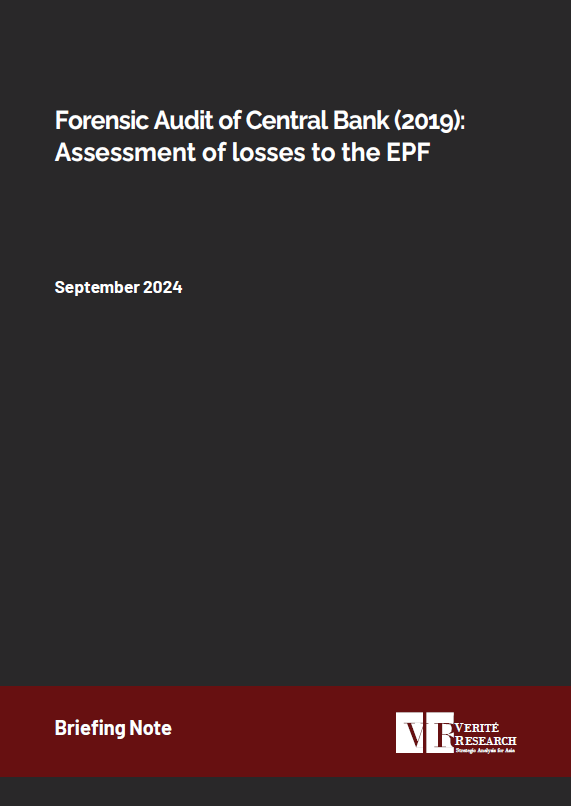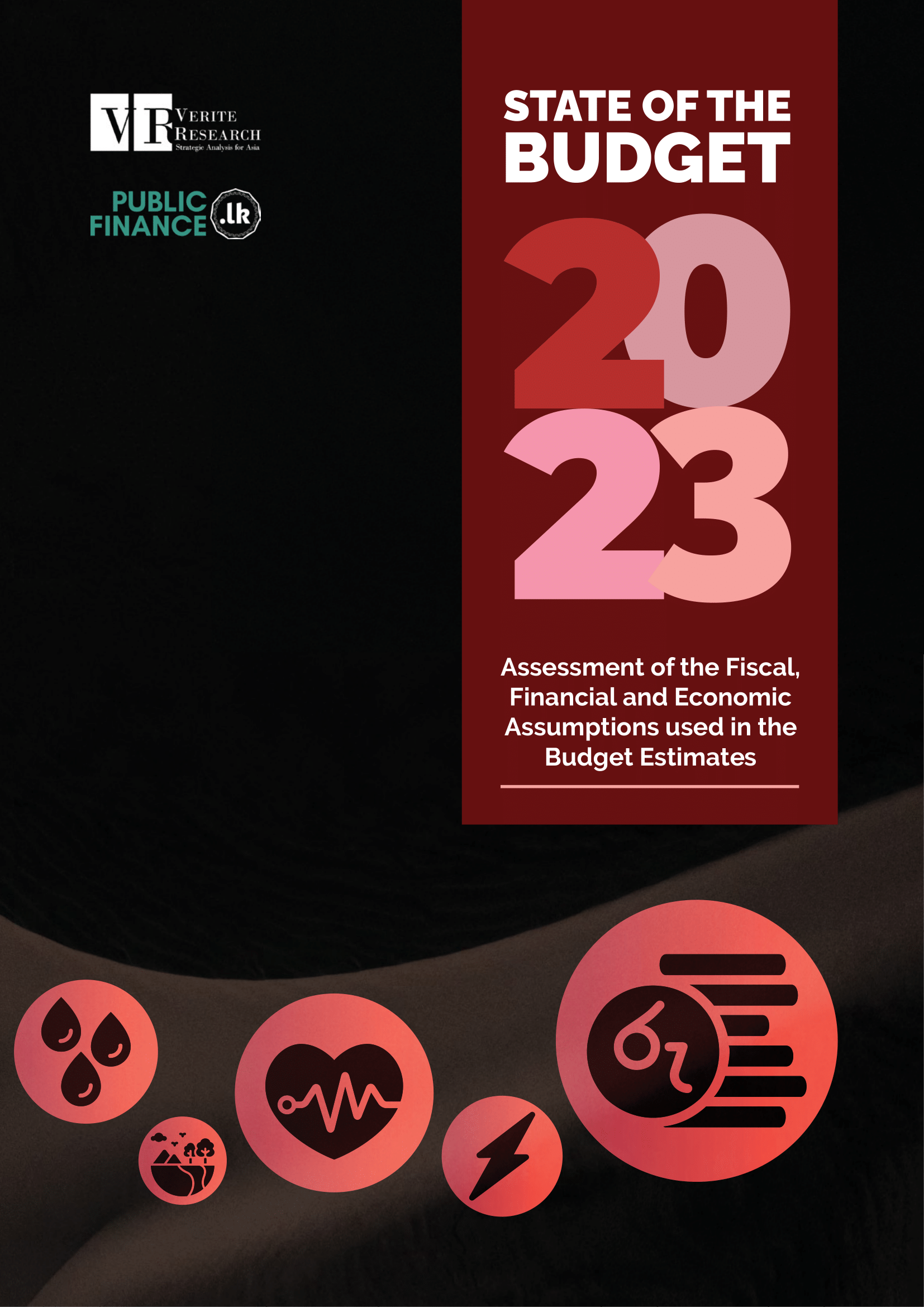This edition provides a comprehensive analysis of Sri Lanka’s September 2024 debt restructuring agreement, including insights into the Macro-Linked and Governance-Linked Bonds. The report also explores the implications of the expected debt relief, projected to be lower than the baseline scenario expected by the Ministry of finance.
Governments often mandate that traders secure permits before importing or exporting certain products to fulfill objectives such as protecting endangered species, endemic flora, and ensuring consumer safety. The time, cost, and unpredictability associated with obtaining these permits impact the competitiveness of businesses engaged in international trade. This research brief outlines steps to overcome various obstacles that hinder the streamlining, simplification, and automation of these processes to make them more business friendly. Using the issuance of forest permits for horticultural exports as a case study, it shows how adopting steps to facilitate trade can reduce trade costs and strengthen regulatory oversight.
This note examines the bond and equity market forensic audit reports to ascertain the scale of the EPF’s losses in the past. It also highlights a significant underestimation of the actual losses, as the forensic audit omitted the period after the February 2015 bond scam from the bond market forensic report. These losses largely stemmed from significant governance failures within the CBSL’s processes and undue influence from its top management. Await the detailed report by Verité Research. Register here to receive a free copy of the report as soon as it’s published. https://forms.office.com/r/8Qd6mUkrKU
This is Verité Research’s latest study on the Sri Lankan government’s progress in fulfilling the commitments on reconciliation and accountability in UNHRC Resolution 30/1. At the 51st session of the United Nations Human Rights Council (UNHRC) in September and October 2022, Resolution 51/1 was adopted. The Sri Lankan government rejected Resolution 51/1. On 9 September 2024, a written update on Sri Lanka was presented to the 57th UNHRC session. Verité Research’s report analyses the government’s progress in fulfilling all 36 commitments made in UNHRC Resolution 30/1, from September 2023 to August 2024.
This report, commissioned by the International Labour Organization assesses the challenges in extending social security benefits to domestic workers in Sri Lanka. It highlights legal gaps, socio-cultural barriers, and practical issues with implementing key schemes like the Employees’ Provident Fund (EPF), Employees’ Trust Fund (ETF), gratuity, maternity benefits, and work-related injury compensation. To address these challenges, the report suggests both short- and long-term measures, including amending laws, digitizing registration, and introducing new legislation to establish minimum labour standards. The report aims to enhance social security coverage and protect the rights of domestic workers in Sri Lanka.
The State of the Budget 2023 report compiled by Verité Research assesses the financial, economic and fiscal assumptions, the computation of estimates, and reporting standards applied in the 2023 Budget Speech. State of the Budget is set out in four main sections. Section one introduces the report, sets out its objectives and provides some background to Sri Lanka’s budget formulation process. Section two draws attention to the various deficiencies in the budget. Section three provides an analysis of the revenue estimates used in Sri Lanka’s 2023 Budget. Section four focuses on expenditure allocations and highlights concerns regarding the 2023 budget.
The 13% primary expenditure rule proposed in a new public finance bill is at odds with established economic theory. It will undermine “good” public spending that enhances growth, efficiency, and social welfare. It will also make Sri Lanka a global outlier, by setting a GDP based limit on primary expenditure, which is the lowest in the world.
This note proposes three steps Sri Lanka could take to construct and manage high quality Investment Zones, drawing from regional and global best practices. First, is enacting a separate, overarching legislation to govern Zones. Second, is enhancing the quality of Zones by mandating minimum quality standards and establishing minimum criteria for selecting investors to develop and manage Zones. Third, is preventing conflicts of interest by separating the roles and responsibilities of regulators, developers, and operators and establishing a level playing field by ensuring regulatory independence. Underlying these proposals is the recognition that Sri Lanka needs to have a more robust regulatory framework than what is provided in the Economic Transformation Bill (ETB) gazetted on May 14, 2024. The need for such a framework is higher in Sri Lanka, given the scarcity of land and intense competition in the Asian region for foreign investments. The recommendations address three critical problems that have made Sri Lanka fall behind many of its regional peers. s. First, Sri Lanka has under-invested in both the quantity and quality of Zones. Second, it has exclusively depended on the public sector to build and manage Zones. Third, the country lacks an appropriate regulatory framework to attract private…
This report delves into the intricate landscape of Freedom of Religion or Belief (FoRB) in Sri Lanka, particularly focusing on the challenges surrounding the establishment and maintenance of places of worship. It sheds light on discriminatory practices, including registration requirements imposed by Ministry of Buddha Sasana circulars, which have disproportionately affected minority religious groups. By examining both international standards and domestic legal frameworks, the report aims to provide insights and recommendations to safeguard the right to FoRB in Sri Lanka and ensure equitable treatment for all religious communities.
This working paper outlines the technical and incentive dynamics for a proposed new sovereign debt instrument designed for countries with high country risk premiums, where this risk is, ceteris paribus, correlated with the quality of present and future governance. We call this instrument a Governance-Linked Sovereign Bond (GLSB). The paper introduces the design of a GLSB and the formulaic method for deploying such an instrument in situations where country risk premiums might be correlated with governance-related actions. A specific illustrative model is used to demonstrate the practical applications of this debt instrument.









